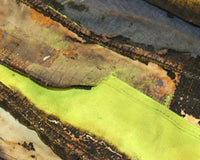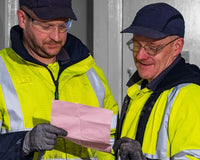BC: Have you always had a passion for the future of energy? Where did this passion come from?
YA: Not always, this has developed over time. I didn’t know what I wanted to do as a career when I was younger; I have stumbled through somewhat to get here. I became really interested in the energy sector after doing a summer internship with E.ON in a gas fired power station while I was at University, this was when I realised how important energy is to our lives.
YA: As I progressed and learned more, and after working in the oil and gas sector, I decided that I had to work on making our energy systems more sustainable.
BC: What steps did it take to get to your current role?
YA: I studied Chemical Engineering at university, completed a two-year graduate scheme with E.ON, worked in oil and gas exploration and production for about five years, then took a role as the control room manager for E.ON’s district heating business.

YA: At this point, I wanted to become more involved in the decisions that are made about our energy systems and figured Government would be a good place for this, so pursued this avenue. It took some time, but I eventually secured a role with the Department for Business, Energy and Industrial Strategy, working on energy innovation.
BC: How did you feel when you were selected as one of the top 50 Women in Engineering in 2020? Did you expect this?
YA: It felt amazing! It was fantastic to be listed alongside some truly amazing women.
YA: It was also a big personal achievement and validation that I am working on issues that are making a difference to sustainability. I didn’t expect it, as I know that the judges normally receive many excellent nominations for the WE50.
BC: Which projects have you led that you are most proud of and why?
YA: My first venture into energy innovation was when I worked in oil and gas and led a study to investigate the applications of additive manufacturing in oil and gas exploration and production.
YA: I am proud that I picked up this topic and ran with it. I enjoyed it so much, that energy innovation stuck with me and has led to where I am today.
YA: I am also really happy that I have been able to bring work experience students into my workplaces, and hopefully ignite their passion for engineering and energy.
BC: What projects are you looking forward to push forward and champion in 2021 onwards?
YA: My focus this year is on industrial decarbonisation, so I will be working on some innovation programmes and projects related to reducing emissions from industry. This will include lots of technical solutions, from energy efficiency to the use of hydrogen.
YA: I will also continue to push the message about the importance of engineers in society, and the need for a diversity of people in the profession.
BC: Do you have any advice for any women who are new into the Engineering world?
YA: Firstly, I would say well done, you have chosen an excellent career! Keep an open mind, there are countless fascinating jobs that engineers can have.

YA: After ten years of working, I still frequently come across engineers doing things I didn’t know existed.




